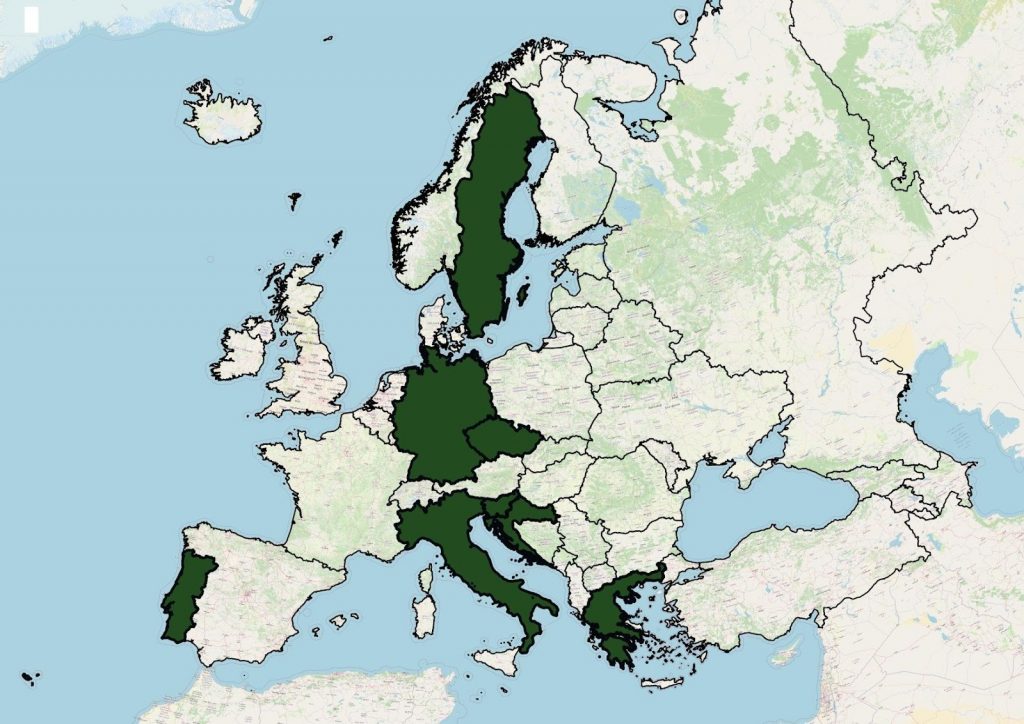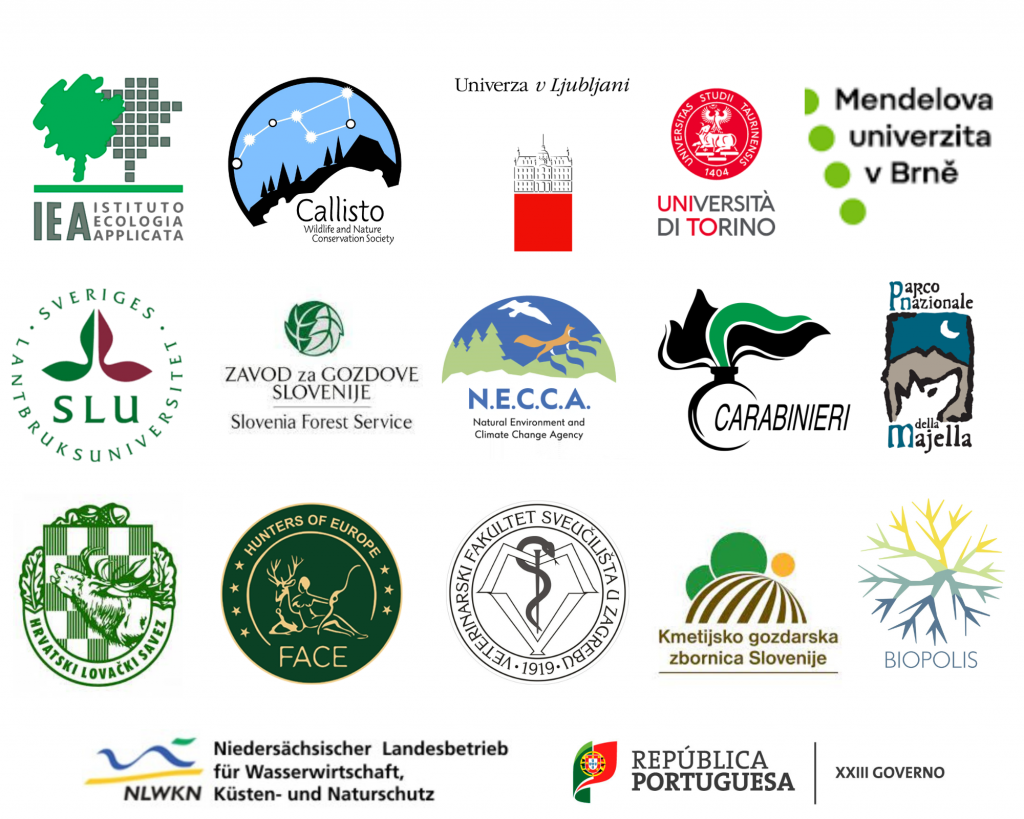LIFE WILD WOLF
Concrete actions for maintaining wolves wild in anthropogenic landscapes of Europe
BACKGROUND
Where human settlements and wolf territories overlap, encounters may happen. Damage to human property caused by wolves may lead to conflicts. In Europe, this is mainly in areas that are re-inhabited or are inhabited anew by wolves.
Encounter with a wolf in the proximity of a settlement and damage occurence often result in fear and, consequently, in a negative attitude towards wolves. This attitude often depends on experience – direct or indirect and knowledge of the species. Direct experience refers to encountering a wolf or an occurence of damage, whereas indirect experience refers to receiving the information from media and the local environment. An important aspect of species conservation is the tolerance of people towards the species. Furthermore, for the species itself, crossbreeding with dogs is critical, as it presents a risk to the preservation of the wolf’s genetic purity.
OBJECTIVES
Within the LIFE Wild Wolf project, the goal is to reduce conflicts with wolves in the vicinity of settlements. We wish to raise the level of understanding of wolf behaviour among the local population, which could help improve people’s attitudes towards wolves in a local urban environment in the future.
We wish to know more about the behaviour of the wolf-dog hybrids, as well as develop strategies to prevent their spread.
PROJECT DURATION AND PROJECT PARTNERS
The project runs from January 2023 to August 2027, for 56 months. Involved are 18 partners from 8 countries. The participating countries are Slovenia, Croatia, Italy, Portugal, Greece, Germany, the Czech Republic and Sweden.
The lead partner in the project is the Istituto di Ecologia Applicata. Slovene partners are the Slovenia Forest Service, the University of Ljubljana, and the Chamber of Agriculture and Forestry of Slovenia.
 photo:
Map of the project area.
photo:
Map of the project area.




